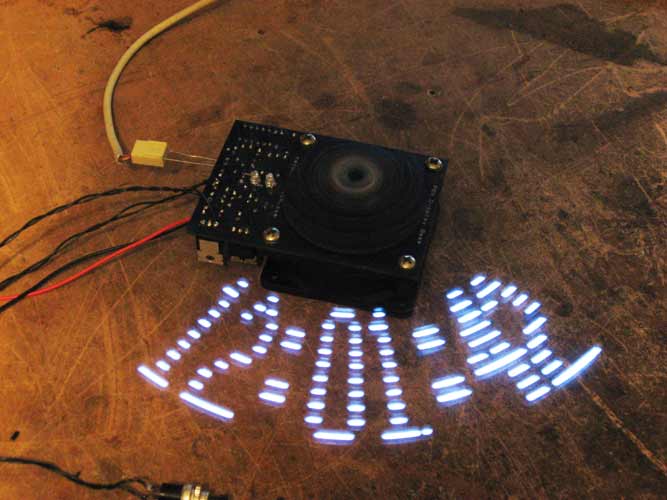If you have a spare DC motor, a PIC16F84A microcontroller, and a lot of patience, then [Jon] has a great guide for building a persistence of vision clock that is sure to brighten up any room. For those who are unfamiliar with this type of clock, the principle is simple: a “propeller” with LEDs spins, and at just the right moment the LEDs turn on and display the time.
We’ve featured persistence of vision projects before (many times), and have even featured [Jon]’s older clocks, but the thing that makes this POV clock different is the detail of the project log. [Jon] wasn’t satisfied with the documentation of existing projects, and went through great pains to write up absolutely everything about his clock. The project log goes through four major versions of the hardware and goes into great depth about the software as well, making it easy for anyone to recreate this robust clock.
As for the clock itself, the final revision of the hardware has a PCB for all of the components, and uses a PC fan motor to spin the propeller. Power delivery eliminates slip rings or brushes in favor of wireless power transfer, which is an impressive feat on its own. Indeed, the quality of the clock is only surpassed by the extreme level of detail!
















Good documentation. I always wondered how power could be transmitted through a spinning motor. Now I know at least three ways. I may have to try this myself.